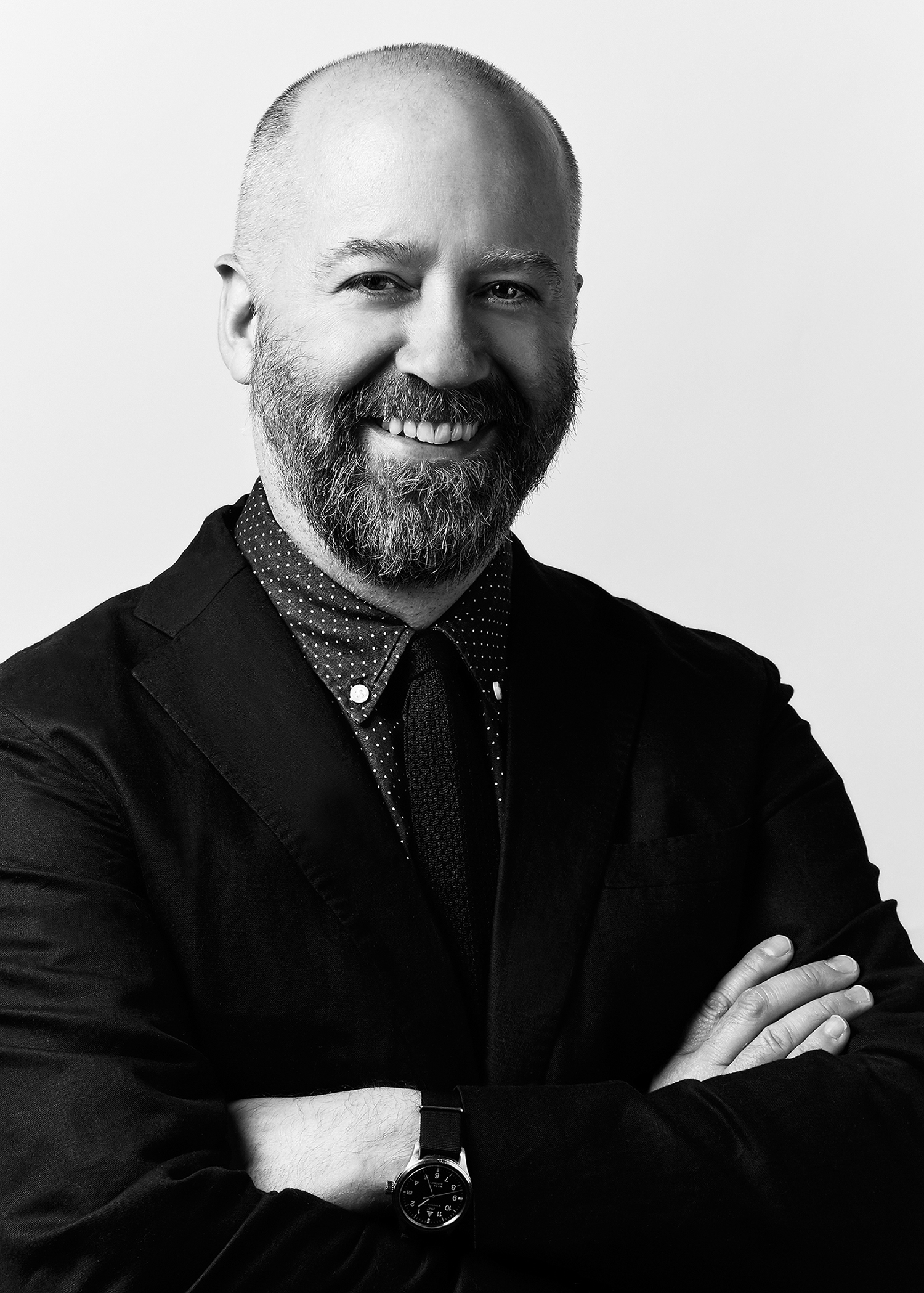Drinkwater’s: A tale of two markets

Gary Drinkwater’s compact Cambridge boutique effortlessly blends traditional clothing with neo-traditional sportswear.
In 1978, disenchanted with graphic design, Gary Drinkwater left art school. He’d been working as a merchandising manager for a sporting goods chain and freelancing as a window dresser on the side. “One day, my mom called to tell me that a place called Louis Boston was looking for a window dresser,” he recalls. “When I went for the interview, I was in a 100 percent polyester three-piece disco suit and platform shoes. I’d never heard of Louis, so the first place I walked into turned out to be a hair salon!” He finally located the legendary menswear store on Newbury Street, only to find that the job had been filled. However, because of Drinkwater’s sales background, they offered him a job on the floor. “Thirteen years later, I’d never trimmed one window,” he laughs.
“Murray Pearlstein took me under his wing. I was his fit model while I worked there and he took me on buying trips to New York,” Drinkwater remembers. “Everything I know today I owe to Murray.”
Drinkwater left Louis in 1991 to open a Cole Haan shoe store, and was recruited three years later to rescue Mr. Sid’s shoe department in Newton Centre. Three years after that he joined Stonestreet’s in Harvard Square, but it closed its doors in 2004.
“Had Stonestreet’s not closed, I might still be there today. But it made me realize I needed to do my own thing. It was the best thing that could have happened to me.”
He opened Drinkwater’s in 2004 in a former 19th-century carriage and sleigh factory, filling it with antique French furniture from a local dealer. “The store isn’t big for the amount of business it does, but it’s extremely well edited,” observes Bob Kidder, founder of New England Shirt Co. and a longtime friend. “The product in Gary’s store is reflective of not only who his customer is but of his vision of what the market is and should be. Gary’s got a very different clientele: the traditional guy who still remembers him from when he worked at Stonestreet’s, and the customer who comes in for products like Engineered Garments. In a small amount of space, he’s applied his vision to two different markets.”
Engineered Garments, a contemporary sportswear collection inspired by American workwear, is in the store partly because of another long friendship, one he’s had with the designer, Daiki Suzuki. He met him in the early ’80s when Suzuki moved to Boston to buy for a Japanese retailer. “We maintain a very nice friendship, above and beyond business. When I was putting the plans together for the store, I contacted Daiki and told him about it, and he told me about Engineered Garments, which was relatively new at the time. When I saw it later in New York, I loved it. It was classic, but it had a twist that was based on the research Daiki had been doing for the past 10 years. And then I thought about what we were trying to do here—I was certainly not going to be an Armani or a Hugo Boss type of store. I wanted to be an updated traditional store, and Engineered Garments fit. And it hasn’t skipped a beat during the eight years we’ve carried it.”
Drinkwater works closely with most of his vendors. “He won’t just accept what the market gives him,” notes Kidder, mentioning fit specifically. “You see that throughout everything he does.”
And Drinkwater is very particular about fit. “I don’t like American fits,” he says. “I was a slim guy and I hated baggy shirts, and I knew my customer did too. Now nothing in our store has a full fit to it.”
In his spare time, Drinkwater has rekindled his teenage fascination with cars. “My wife says it’s my mid-life crisis,” he chuckles. “I bought a 2005 Mini Cooper from a guy who had been modifying it. It was fast when I bought it and I’ve just made it faster. I’m thinking about racing it. If I were to do something else with my life I’d be a mechanic.”
He always thought he’d work in retail though. “Owning my own store was always a dream. When I got out of college, working in the sporting goods store, I wanted to have an outfitter’s store. I was planning on opening it in Portland, Maine—I had an affinity for Maine and had friends up there. But here I am, 35 years later, doing what I really love. And I found that love for menswear working at Louis Boston for Murray Pearlstein.”
Fast Facts
* Established in 2004
* Location: Cambridge, Mass.
* Size: 1,200 sq. ft.
* 100% men’s
* 60% branded/40% private label
* Classification breakdown: 30% clothing, 30% sportswear, 15% furnishings, 10% accessories, 10% designer, 5% denim/contemporary
* Charitable organizations: Hope Found and Heading Home, both dedicated to helping homeless men and women transition back into contributing members of the community
* Top brands: Samuelsohn, Southwick, Naked & Famous, New England Shirt Co., Engineered Garments, Universal Works









